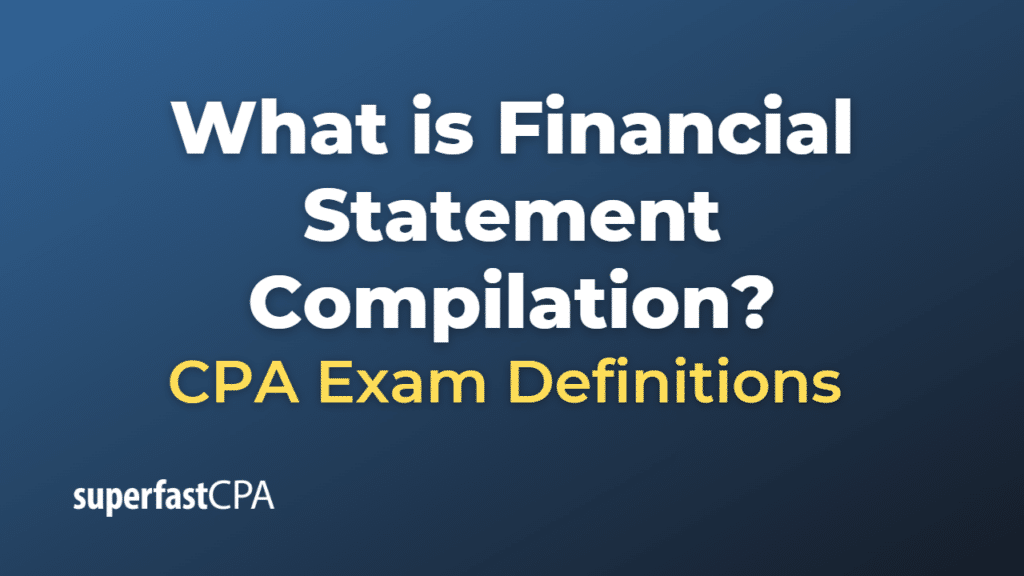Financial Statement Compilation
A financial statement compilation is a service provided by an accountant or an accounting firm that involves gathering a company’s financial information and presenting it in the form of financial statements. Unlike an audit or review, a compilation does not involve a deep investigation of the financial statements, nor does it provide assurance about the accuracy or completeness of the information.
The accountant simply presents the financial data provided by the management in the form of financial statements without verifying or attesting to the accuracy of the information. The accountant might also assist the company in summarizing the details of their transactions and recording them in the correct accounts.
A compilation is often used for internal purposes or for smaller businesses that do not require assurance services. It is the least extensive and therefore typically the least expensive of the three types of services involving financial statements (compilation, review, audit).
When an accountant compiles financial statements, they usually issue a compilation report, which states that the accountant has not audited or reviewed the financial statements and, accordingly, does not express an opinion or provide any assurance about the accuracy of the financial statements.
The main advantage of a compilation is that it’s a cost-effective way to have financial statements prepared by a professional accountant. However, its limitation is that it doesn’t provide any assurance to users of the financial statements regarding the accuracy or completeness of the financial information presented.
Example of Financial Statement Compilation
Let’s consider a fictional small business, “BakeDelight,” a local bakery shop. The owner of BakeDelight decides that he needs professional financial statements to show to his banker for a loan he’s planning to take out. However, due to the small size of his business and the high cost of an audit or review, he decides to go for a compilation service instead.
He hires an accounting firm, provides them with all the financial data of his business, including sales records, expenses, assets, liabilities, etc. The accounting firm then uses this information to prepare the balance sheet, income statement, and cash flow statement of BakeDelight.
Remember, the accounting firm does not verify the accuracy of the information provided by the owner. They simply use it as provided to create the financial statements in accordance with Generally Accepted Accounting Principles (GAAP) or another relevant accounting framework.
Once the financial statements are compiled, the accounting firm provides them to the owner along with a report stating that the firm has not audited or reviewed the statements and does not express an opinion or provide any assurance about their accuracy. Now, the owner can present these professionally compiled financial statements to his banker.
This is a simplified example, but it provides a basic idea of what a compilation is and how it might be used in the real world.













